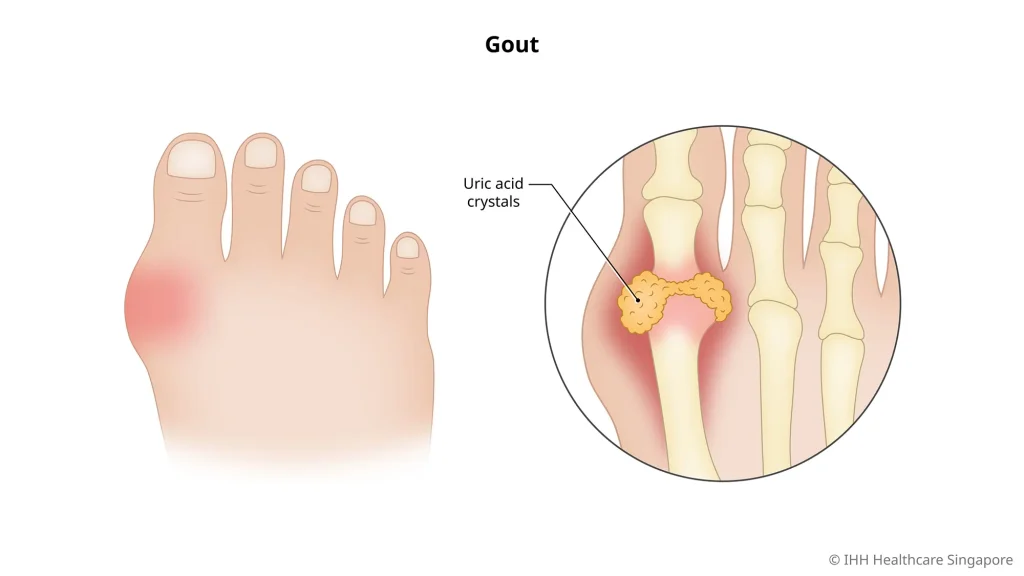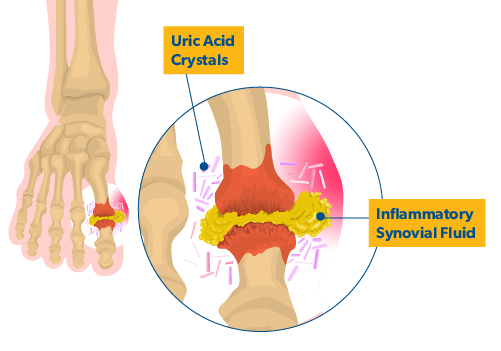Clearwater, FL (727) 734-6631
Oldsmar, FL (727) 263-0800


Some health conditions can also increase risk for gout. These include:
People with gout have a greater risk of getting kidney stones.
© 2025 Bay Area Rheumatology. All rights reserved.